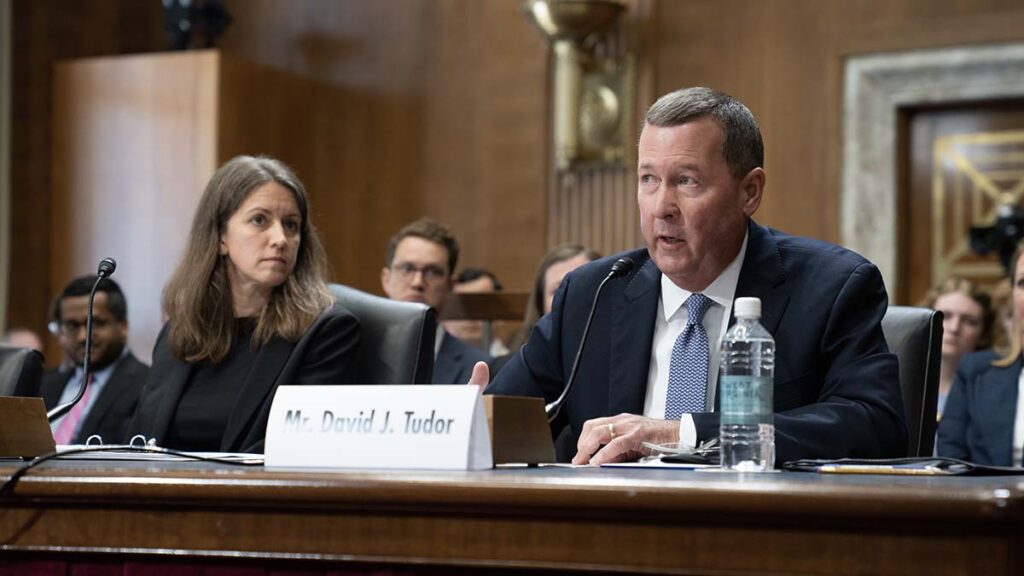
The push to rapidly replace always-available energy sources could spark rolling blackouts across America, the leader of a Midwest generation and transmission cooperative warned a Senate panel Thursday.
“Lawmakers must support policies that include all energy sources to maintain reliability and affordability. Rolling blackouts cannot become the new normal,” David Tudor, CEO of Springfield, Missouri-based Associated Electric Cooperative Inc., told the Senate Energy and Natural Resources Committee at a hearing on electric system reliability.
“It is critical that policymakers recognize the need for adequate time, technology development and new transmission infrastructure before taking our nation down an energy path that prioritizes speed over successfully keeping the lights on.”
Tudor cited the North American Electric Reliability Corp.’s recent Summer Reliability Assessment, which warned that two-thirds of the U.S. could face energy shortfalls during periods of extreme heat this summer.
“Importantly, the 2023 NERC summer reliability assessment is just the latest in a series of alarming reminders about the new electric reliability challenges facing the nation,” Tudor said.
“Last month, Federal Energy Regulatory Commissioner Mark Christie warned this committee of threats to reliable electricity, stating ‘I think the United States is heading for a very catastrophic situation in terms of reliability.’”
Associated Electric Cooperative, which serves 935,000 meters across rural Missouri, northeast Oklahoma and southeast Iowa, was able to keep the lights on during severe winter storms the past two years that knocked out power to millions of Americans and led to the deaths of more than 700 people in Texas during Winter Storm Uri in February 2021.
“Associated relies on a balanced generation mix, with proven and reliable coal and natural gas generating plants as a valuable foundation for reliability and dispatched its units to full capacity in advance of the cold temperatures,” Tudor said, describing the co-op’s response to Winter Storm Uri.
“Despite significant outside pressure in recent years to move to other options, these fossil-fuel generating stations were the major factor in keeping the lights on for the 2.1 million people we serve. Hydropower allocated by the Southwestern Power Administration was a reliable energy source. Wind generation in Associated’s mix played a minor role.”
Last December, nine states experienced rolling blackouts as the demand for electricity exceeded supply during Winter Storm Elliott.
“Again, coal and natural gas generation carried the day, preserving reliability for Associated’s members when they needed power the most,” Tudor said.
He applauded the inclusion of some permitting reform provisions in the debt limit deal reached by President Joe Biden and House Speaker Kevin McCarthy, R-Calif. The House approved the deal Wednesday and the Senate approved it late Thursday.
NRECA has made permitting reform a top priority, as the lengthy and costly process for obtaining a federal environmental permit can derail crucial projects to improve service to co-op consumer-members.
“These reforms, including firm time limits for environmental reviews, greater applicant involvement in the process and more efficient reviews for recurring small projects we already know have minimal environmental impacts, will allow co-ops to build new generation and transmission infrastructure in a timely and cost-effective way,” Tudor said.
Erin Kelly is a staff writer for NRECA.